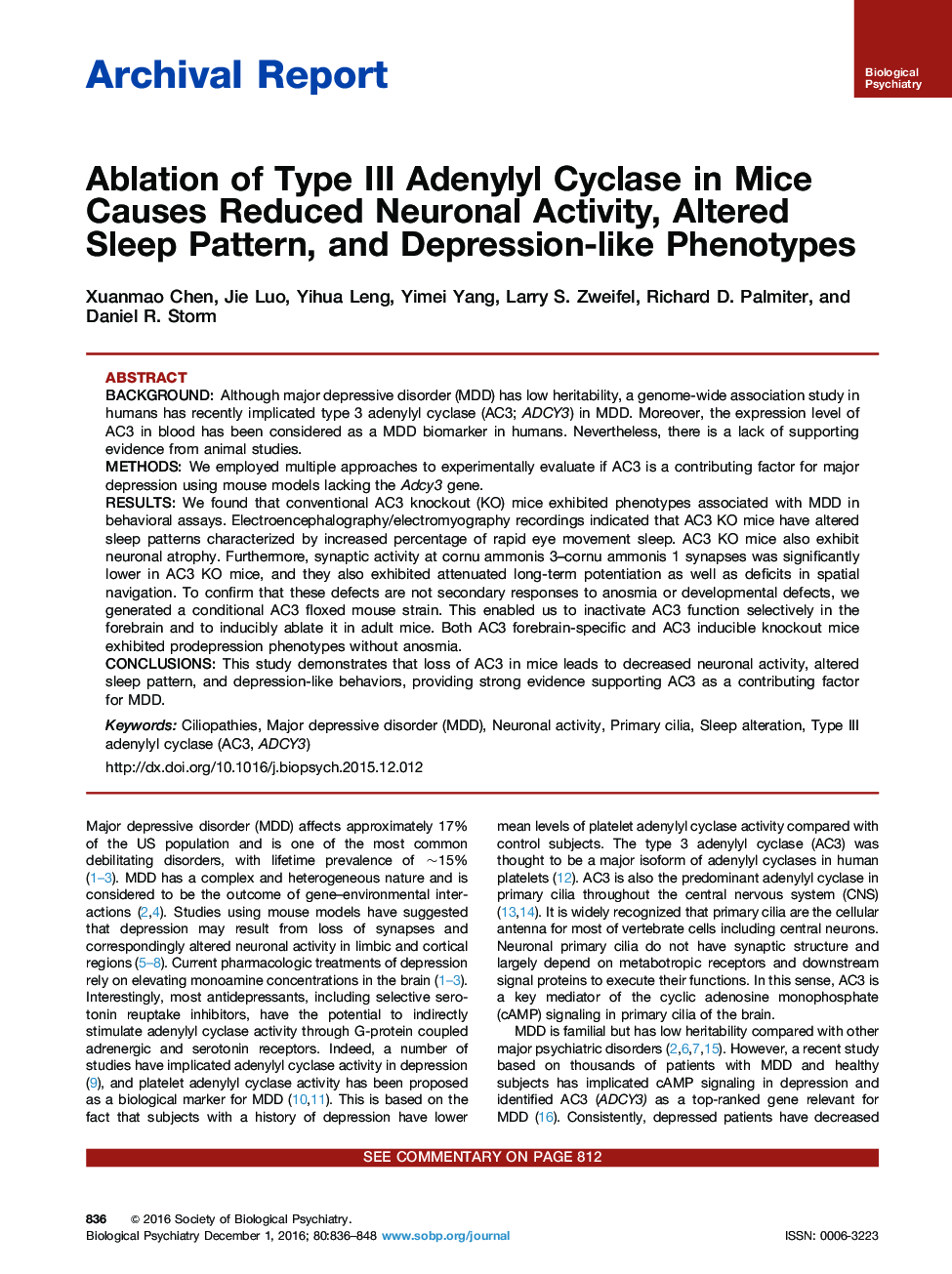| کد مقاله | کد نشریه | سال انتشار | مقاله انگلیسی | نسخه تمام متن |
|---|---|---|---|---|
| 5720697 | 1411324 | 2016 | 13 صفحه PDF | دانلود رایگان |

BackgroundAlthough major depressive disorder (MDD) has low heritability, a genome-wide association study in humans has recently implicated type 3 adenylyl cyclase (AC3; ADCY3) in MDD. Moreover, the expression level of AC3 in blood has been considered as a MDD biomarker in humans. Nevertheless, there is a lack of supporting evidence from animal studies.MethodsWe employed multiple approaches to experimentally evaluate if AC3 is a contributing factor for major depression using mouse models lacking the Adcy3 gene.ResultsWe found that conventional AC3 knockout (KO) mice exhibited phenotypes associated with MDD in behavioral assays. Electroencephalography/electromyography recordings indicated that AC3 KO mice have altered sleep patterns characterized by increased percentage of rapid eye movement sleep. AC3 KO mice also exhibit neuronal atrophy. Furthermore, synaptic activity at cornu ammonis 3-cornu ammonis 1 synapses was significantly lower in AC3 KO mice, and they also exhibited attenuated long-term potentiation as well as deficits in spatial navigation. To confirm that these defects are not secondary responses to anosmia or developmental defects, we generated a conditional AC3 floxed mouse strain. This enabled us to inactivate AC3 function selectively in the forebrain and to inducibly ablate it in adult mice. Both AC3 forebrain-specific and AC3 inducible knockout mice exhibited prodepression phenotypes without anosmia.ConclusionsThis study demonstrates that loss of AC3 in mice leads to decreased neuronal activity, altered sleep pattern, and depression-like behaviors, providing strong evidence supporting AC3 as a contributing factor for MDD.
Journal: Biological Psychiatry - Volume 80, Issue 11, 1 December 2016, Pages 836-848